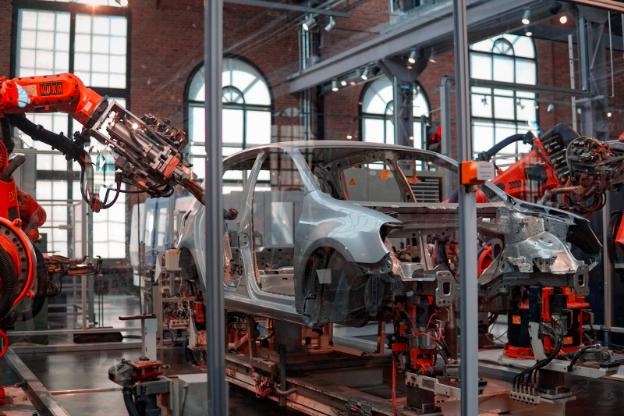Manufacturing growth in the United States grew at a slower rate in July, according to a new survey done by the Insitute for Supply Management (ISM). This could end up helping to ease the current supply chain bottlenecks that are hampering many industries in the nation, as well as worldwide. For the second month straight now, manufacturing growth has slowed down, possibly because consumer demand has switched from goods to services in the last few months.
According to ISM, national factory activity fell to 59.5 in July, which is the lowest reading for a month since January. In June, the reading was at 60.6. For the most part, any reading above 50 in factory activity signals a growing economy, as this means that manufacturers are expanding
The rate of prices paid by manufacturers also fell more than it has in 16 months in July. For July, the reading fell to 85.7. In June, the reading hit a high of 92.1.
All of these latest readings from ISM could signal that the supply chain bottlenecks may ease in the near future. Currently, industries around the nation are struggling to deal with labor and raw material shortages, both of which have hampered manufacturing activity. However, as more Americans become fully vaccinated and more people reenter the workforce, many analysts expect labor shortages to go away. Raw material shortages, on the other hand, may take slightly longer to sort themselves out.
However, consumer demand has switched from goods to services in the last few months according to reports completed by the Commerce Department. While consumer demand is still surging, the demand is mainly for travel-related services, such as hotels or restaurants. People have gone slightly away from goods.
This ease in demand has possibly allowed manufacturers to get caught up. The surge in consumer demand earlier this year left many with depleted inventories, and the shortage in raw materials didn’t help at all. Now that supply and demand seem to be sorting out naturally, this could end up helping the supply chain bottlenecks.
However, problems do still exist. This latest ISM survey reveals that many manufacturers are still struggling with global supply chain problems. They’re having to place their orders months ahead of time than normal, just so they’re staying on top of things. The computer and electronics industry as a whole is struggling, mainly because of the global raw material shortage.
While the overall supply chain bottleneck is signaling that it may work out in the next few months, analysts are still worried that industries and businesses may continue to struggle. For example, the Delta variant of the COVID-19 virus has caused infections to surge nationwide, which has made many wary of the next few months. Already, counties, states, and companies have mandated indoor masks again. As the next few months play out, consumer demand may shift yet again, which could affect the easing of the supply chain bottlenecks. While analysts are positive that this new virus won’t completely hinder industries as it did in 2020, there really is no telling what the future holds.













